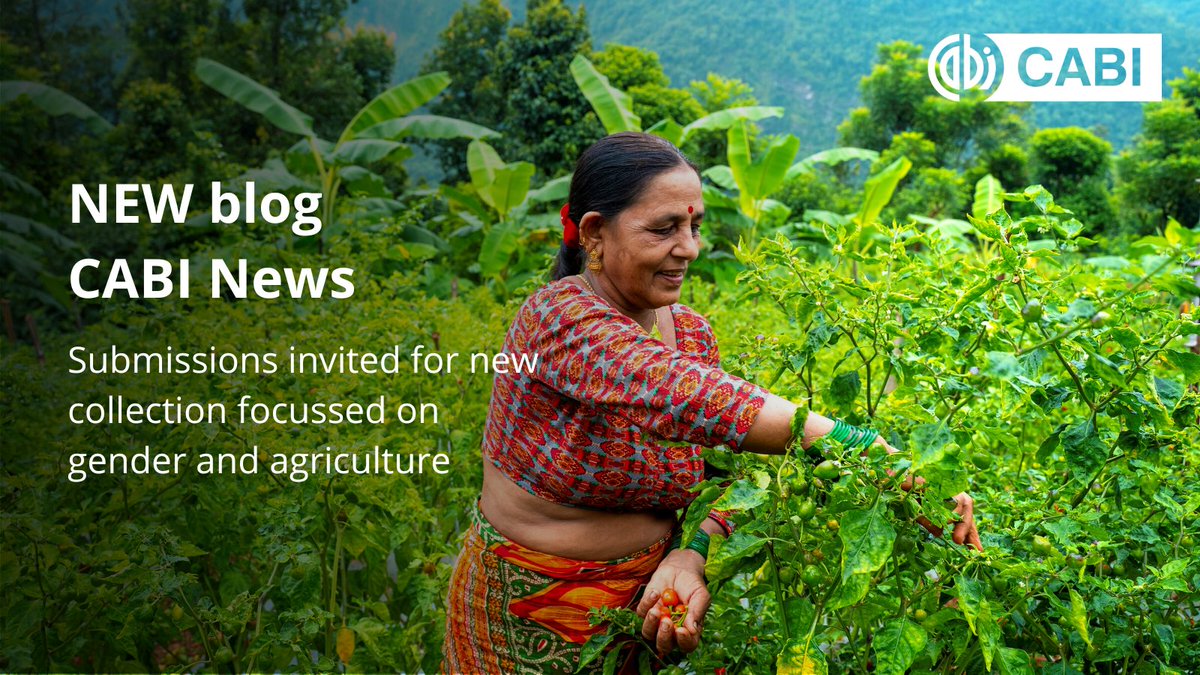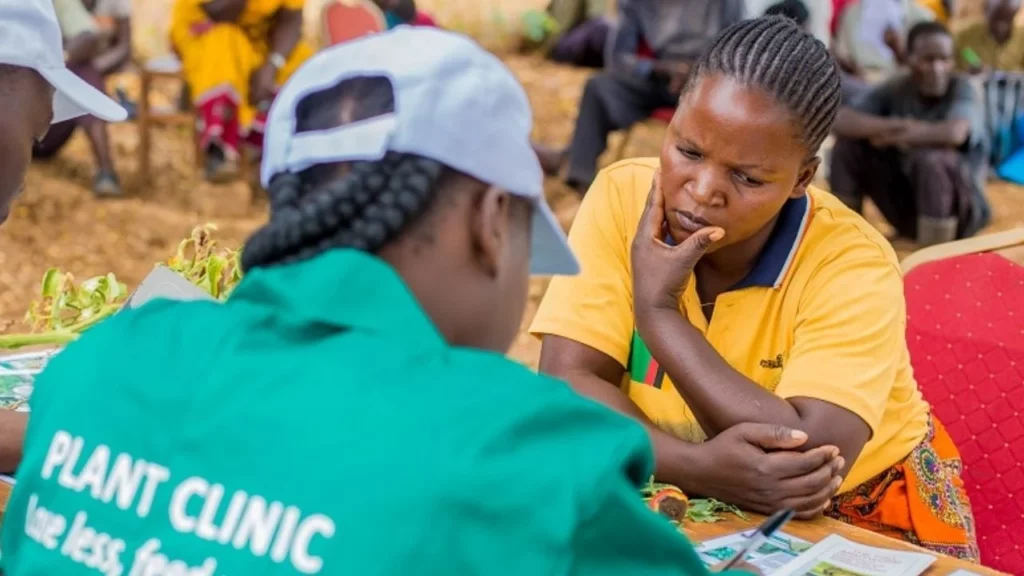Embracing equity to integrating a gender perspective into food and nutrition security
March 07, 2023
Women farmers make up around 43 per cent of the agricultural labor force, says CABI, and produce over half of all food grown worldwide. Yet, when you picture a farmer, are they a woman?
CABI is an international, inter-governmental, not-for-profit organization that improves people’s lives worldwide by providing information and applying scientific expertise to solve problems in agriculture and the environment. Its approach involves putting information, skills and tools into people's hands. Its support to food and nutrition security aims to ensure sufficient, safe and nutritious food availability.
Integrating a gender perspective in agriculture is important to realize gender equality and women’s empowerment in the agriculture sector, enabling women to participate and benefit from development. The adoption of a gender perspective is also important to improve effectiveness of agriculture programs and policies, to improve food security, reduce poverty and increase resilience to climate and other risks.
CABI aims to improve lives by solving problems in agriculture and the environment, and spoke with a panel of experts on the role biases and misconceptions play in preventing women farmers access agricultural advisory services in different regions and cultural contexts around the world.
These experts are forging change for women in agriculture, and ensure that global communities #EmbraceEquity by driving inclusion in the industry.
Submissions invited for gender and agriculture series

CABI’s Gender Coordinators Sajila Khan and Bethel Terefe join Frances Williams, Director of Social Sciences at CABI, in guest editing the thematic series that aims to address gender gaps experienced by women in agriculture.
Submissions are being invited by 31 August 2023 for a new collection of research articles, reviews and opinion papers focussed on gender and agriculture which will be published in the journal CABI Agriculture and Bioscience. See the submission guidelines.
Lack of access to agricultural information
Though vital to rural economies, women find it harder to access agricultural information. Kritika Khanna, Business Development and Communications Officer at CABI, India explains: "Despite the many roles and responsibilities in the field, women have minimal input when it comes to decision-making and often their substantial contribution is undervalued." Not only does this make it harder for women to access credit, land ownership and agricultural inputs, but it can influence extension advisory service provision, leading to the exclusion of women.
Bethel Terefe, CABI’s Gender Coordinator clarifies: "Women are not usually considered as farmers in their own right and service providers tend to see them as farmers’ wives, and this is reflected in the way agriculture advisory service organizations operate."
Land ownership for women farmers
One reason for this is land ownership. Landowners often have the decision-making powers and in mixed households, this is usually the man.
"I had an interesting discussion during a workshop in Burundi," comments Bethel. "When we were training extension plant doctors, they are mainly extension agents and one of the participants said: 'You know, why should a woman make decisions on production? Because the land belongs to the man, so he’s the one who should make the decisions'."
Women farmers and decision-making
It’s a similar situation in Bolivia, as Agricultural Scientist Gabriela Rivadeneira explains. "Here in Latin America, agriculture is a family business. The person that makes decisions is the man, but the woman supports the family, with help with food and taking care of the family."
So how do we address the biases in agricultural service provision and ensure female farmers have better access to advice? One answer is to look at who we class as a farmer.
How do you define a farmer?
"Service providers understand the word primaries," says Bethel. "So, if we consider a farmer is the head of the household or landowner or someone who has a land title, then we won’t be able to target women because most women don’t fall under this category. So, I think we need to change the way we define a farmer’.
Another tactic is to look at who is providing the agricultural advice. Kainat Panhwer, a Women Entrepreneur Facilitator in Pakistan, explains that even though progress has been made, societal and cultural barriers still prevent women from gaining equal access to advisory services.
"In Pakistan, we have engaged local female activists to engage female farmworkers. Women have full access to participate in advisory services and finance. But there is a problem if we engage male staff in advisory services or the training of women because there’s a barrier in our society – females should not be in contact with outsiders," says Kainat.

Plantwise Plant Doctor © CABI
Addressing cultural and societal barriers
Since its launch in 2011, CABI’s Plantwise programme has adopted several strategies to address cultural and societal barriers to women accessing agricultural advisory services, including providing opportunities for in-country partners to train and employ female Plant Doctors.
"We have got to have more women extension agents, extension staff. Because women farmers, in many places, feel more comfortable interacting with women extension agents. We need to create an environment for women extension agents to join and also not quit their jobs, so that would be able to retain them an extension staff as much as possible," adds Bethel.